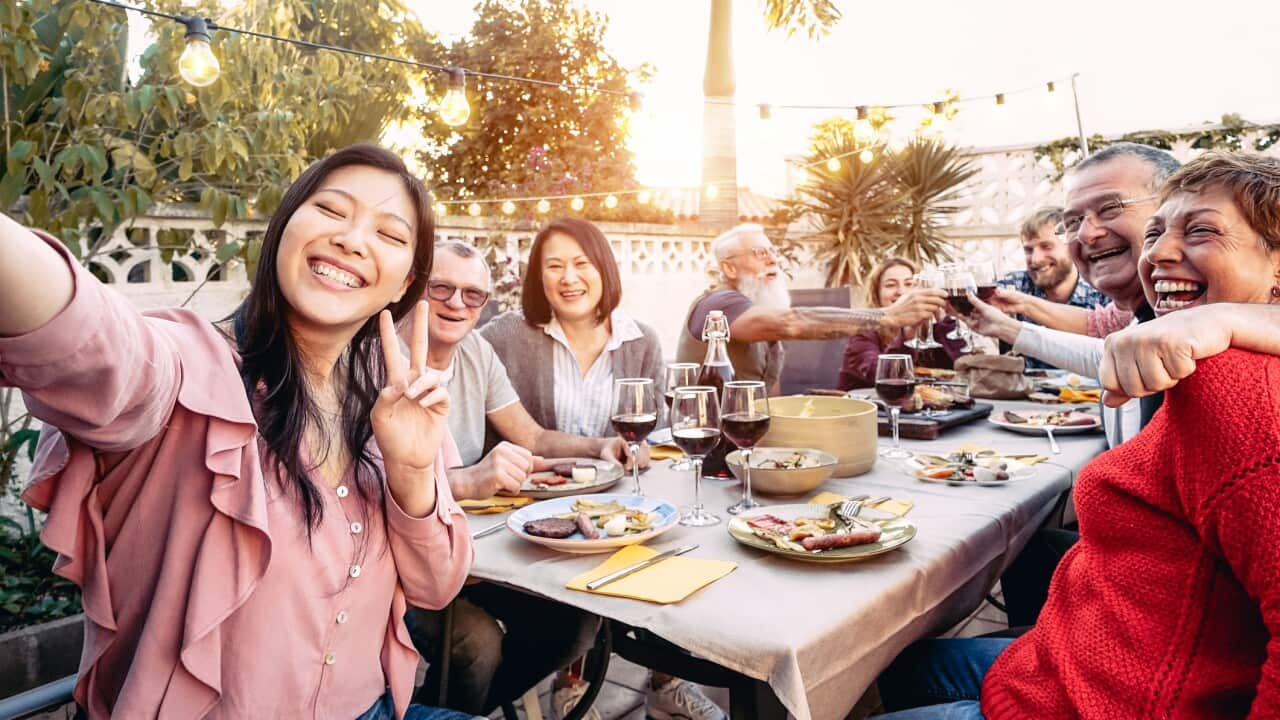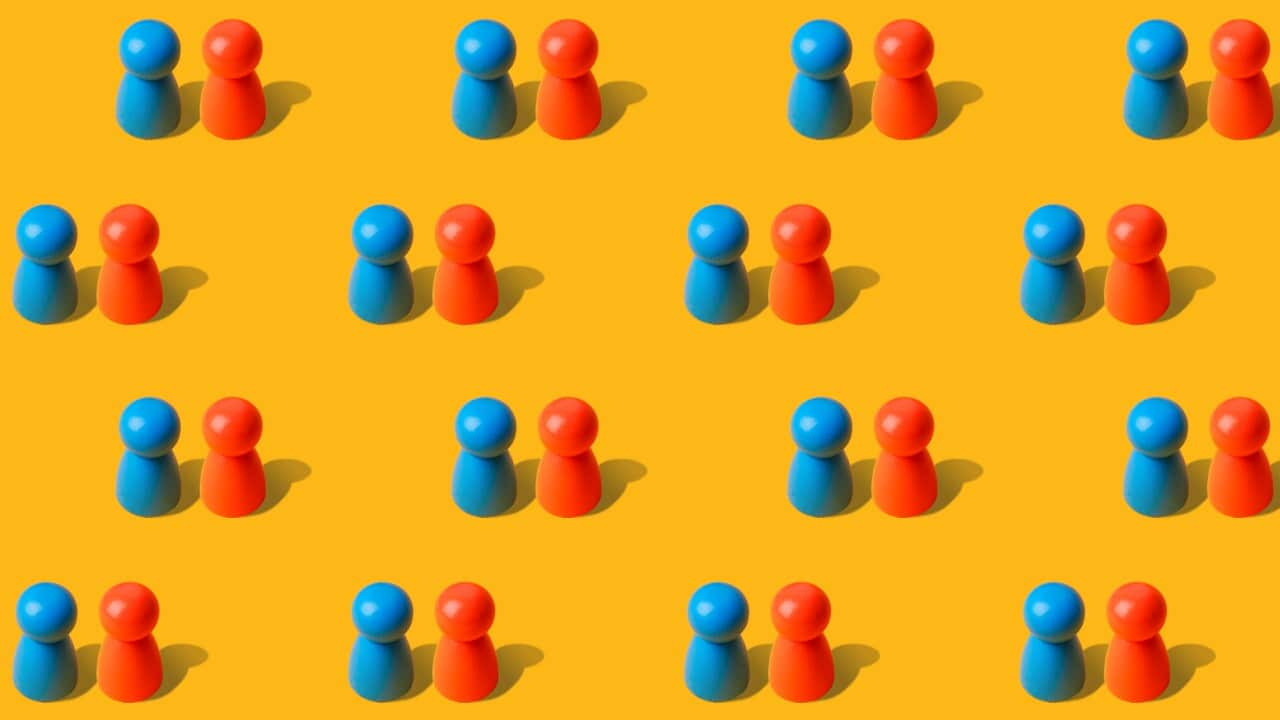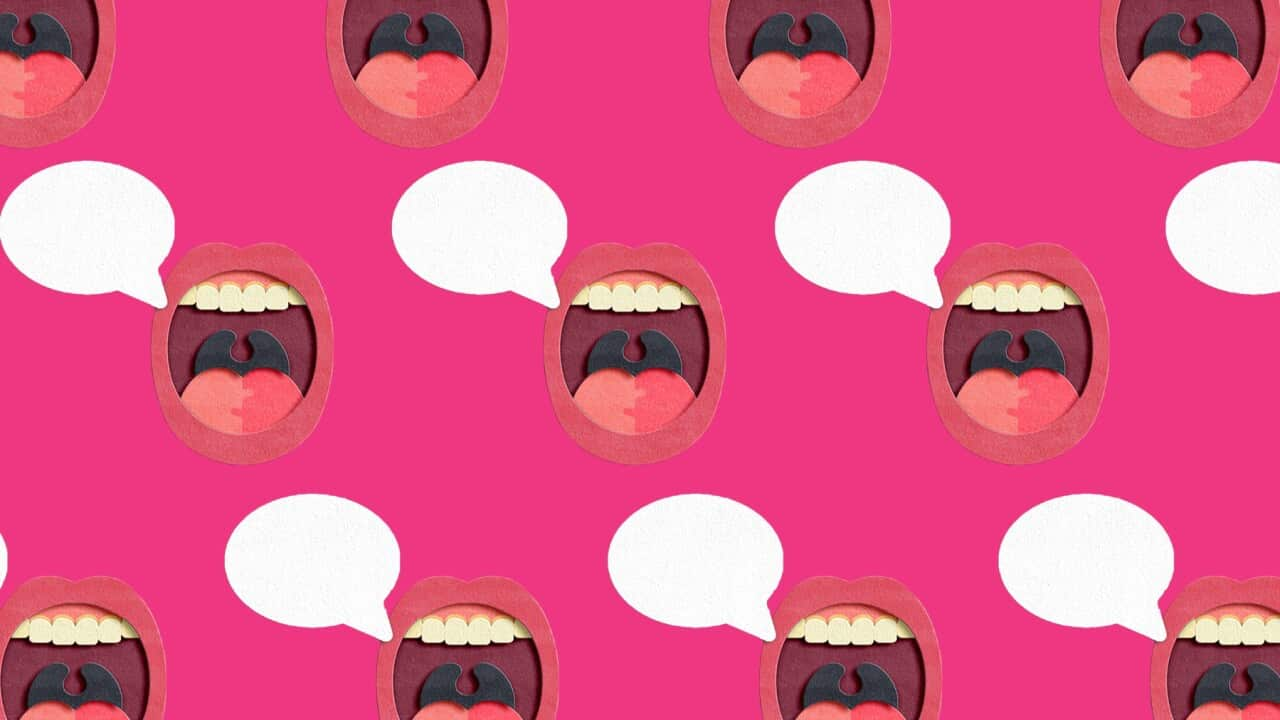Learning notes
Verbs:
Devour - eating with great hunger, very quickly
Slurp - drink or eat something with a loud sucking noise
Swallow - cause or allow food or drink to pass down the throat
Munch - eat something steadily with a loud chewing sound
Crunch - to crush food with the teeth making a loud sound
Chew - bite and work food in the mouth with the teeth, especially to make it easier to swallow
Gulp - to swallow food suddenly all at once
Burp - noisily release air through the mouth
Lick - pass the tongue over something in order to taste it
Nibble - take small bites
Sip - drink by taking small mouthfuls
Colloquial expressions:
Have a snack - to eat a small amount of food typically between meals
Compliments to the chef - a polite phrase we use to say that we appreciate whoever has cooked a good meal
Take a swig - to drink something
Smacking your lips - to make a noise to show that something is good by opening and closing your lips noisily
Transcript
Hi, you are listening to the SBS Learn English podcast, where we help Australians to speak, understand and connect through English.
In this minipod series, we are talking about verbs related to our bodies. Today, we are focusing on verbs and phrases related to eating.
Eating is so common, so every day, that we don't even think about it. Still, the English language has over twenty verbs we can use for something as simple as eating. Sounds complicated? Well, it won't be if we learn by doing.
Mmmm...this is finished. I don't know about you, but there is probably nothing I enjoy more than a home-cooked meal.
My lunch smells so good that I could devour everything. Devour means eating with great hunger, very quickly. But then I wouldn’t really enjoy the food. So, I will eat slowly, or at least try to.
I like nothing better than to start with soup. This sound that you heard is called slurping.
My little secret: sometimes I slurp when I eat soup. In western cultures slurping is considered bad table manners, meaning very rude. On the other hand, in Japanese culture slurping noodles is fine - in fact, it is a four-hundred-year-old tradition.
After slurping, of course, I swallow my spoonful of soup.
Many would go straight from the soup to the main dish. Not me. I love to have a snack in between.
A snack is a light meal. For example, these Fried Prosciutto Tortellini, yum. Munching is eating with this loud, chewing sound.
What you hear is my teeth crushing the tortellini and this is called crunching. Two very similar, rhyming verbs.
Munching and crunching. Often go together. Remember, munching means eating. This way you’ll never confuse them. You can try munching and crunching on your potato chips, while I go to my main dish.
Pan-fried Trout with garlic, lemon and a mix of veggies. Mmmm, sensational. Take your time and chew your food thoroughly. You get to really taste the full flavour and your digestive system will be grateful.
Doctors will often talk about a digestive system. It can sound very medical and complicated while in fact it's just a name for all the organs that deal with food after you eat it.
Now I've done something that I don't recommend - talking while there was still food in my mouth. So, that made me gulp because I had to swallow my food suddenly all at once.
So, you gulp when you swallow too fast or too much of anything in a single bite. And immediately after that I burped.
“Oh, sorry!” When you do this, in Western cultures it is polite to say sorry.
But in other cultures, burping used to be a way of saying that you were really enjoying the food.
Now I’ll take a swig of wine. To take a swig means to drink some.
That's better. I can still taste the wine, and my stomach is okay, and now I’m ready for dessert.
Yum! Dessert is Vanilla ice-cream with cocoa sticks. Here's a tip to really enjoy this delicacy. Take one of the cocoa sticks (they are the long, thin biscuits that stand up in the ice-cream), put it into the ice-cream and then lick it.
So, you use the stick like a spoon! Did you hear me smacking my lips?
Smacking your lips is something you do if you really enjoyed eating something, and so it is like sending a kiss to whoever made it.
And then nibble on the cocoa stick. To nibble means to take really small bites, for example: a mouse nibbles on cheese. Mmm. I have a taste of vanilla still on my tongue, and now I have a little bit of cocoa stick to go with it. Heaven!
Every great story must have a good ending. I love a cup of hot coffee with just a touch of milk after a good meal so that I can sip it.
To sip something is to drink it slowly with small mouthfuls, like nibbling is for food.
Fun fact: it is believed that the entire island of Manhattan has fewer really good coffee places than Canberra alone.
Now that I’ve finished my lunch, I wish I could devour the last three chapters of a novel that I’m reading. Yes, you can use 'devour' when you want to say that you will read a book quickly because, like me, you really want to find out how the story’s ending.
Seems like a book will have to wait as my partner has just arrived.
We'll cook a lovely supper, and then we’ll get to use all those verbs together: eat, drink, slurp, crunch, munch, chew, lick, nibble, smack your lips, swallow, burp, gulp. And you can join us, too.
More episodes

Minipod: Verbs about breathing
READ MORE

Minipod: Verbs about walking












